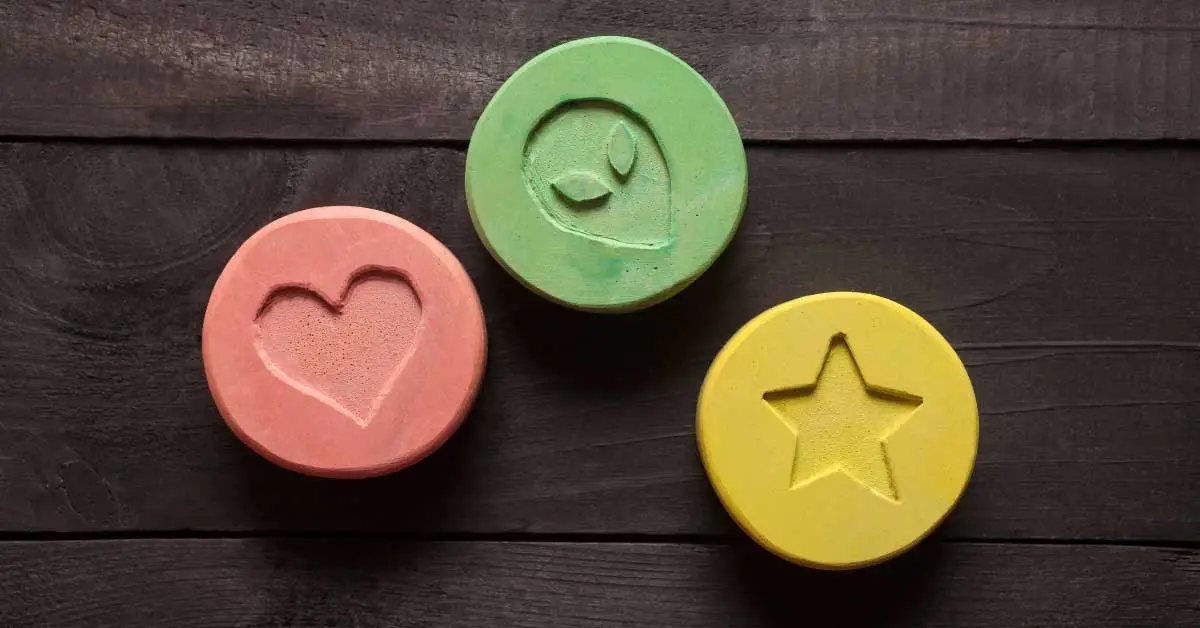Kratom Withdrawal: Duration, Symptoms, and Help
Kratom is a tropical tree native to Southeast Asia. The leaves of the kratom tree have long been used for their stimulant (small doses) and opioid-like (high doses) effects. Those seeking stimulation, pleasure, or pain relief often use kratom leaves, powder, or extract.
Kratom has recently risen to prominence in many parts of the world, including the United States. However, Kratom use is associated with a number of side effects, including kratom addiction and withdrawal.
If you or a loved one are considering quitting kratom, you may be wondering how long kratom withdrawal lasts and what symptoms to expect. We’ll cover that and more below.
What Causes Kratom Withdrawal?
Kratom withdrawal is caused by kratom dependence, which is caused by kratom tolerance. Let’s get into what each of these terms mean.
When an individual regularly uses kratom, they will develop a tolerance, where they must take larger and larger amounts of the drug to feel the same effects. Eventually, their body will become so accustomed to the presence of kratom, that it will be unable to function, “normally,” without the drug.
The primary psychoactive compounds in kratom are mitragynine and 7-hydroxymitragynine, which bind with opioid receptors in the brain. With time, the body eventually stops producing its own natural opioids since kratom is already present. If the user stops taking kratom, the body will initially be unable to properly send signals because it will lack the necessary opioid compounds.
As the body returns to normal functioning without kratom, the individual will experience a collection of highly unpleasant symptoms collectively known as kratom withdrawal.
“If kratom use is suddenly halted, the brain is left in a dysregulated state of neuronal excitability where body temperature, digestion, pain signaling, mood, and restlessness spin out of homeostasis resulting in withdrawal symptoms,” says psychiatric mental health nurse practitioner (PMHNP) Valerie Puffenberger.
If an individual experiences withdrawal symptoms when they cease taking kratom or reduce their dose, they are said to have a kratom dependence. Kratom dependence contains both psychological and physiological elements, and kratom withdrawal may cause both psychological and physiological symptoms.
Kratom Withdrawal Symptoms

Although every case of kratom withdrawal is different, there are some symptoms that more commonly appear than others, including:
- Muscle aches and pains
- Insomnia and other sleep disturbances
- Fatigue
- Restlessness
- Irritability
- Nausea
- Vomiting
- Diarrhea
- Excessive sweating
- Anxiety
- Depression
How Long Does Kratom Withdrawal Last?
From initial onset to final disappearance of symptoms, kratom withdrawal typically lasts about two weeks, following this rough timeline:
1 to 24 Hours after Last Dose (Early Withdrawal)
- The first kratom withdrawal symptoms typically appear within the first 24 hours after the last dose.
- Early symptoms are typically fewer in number and less severe and typically include:
- Muscle aches
- Insomnia
- Irritability
- Nausea
2 to 4 Days after Last Dose (Peak Withdrawal)
- Kratom withdrawal symptoms typically are greatest in number and worst in severity between the second and fourth days after the last dose.
- Symptoms that appeared earlier are typically worse in severity, and may be joined by:
- Anxiety
- Restlessness
- Gastrointestinal issues
1 to 2 Weeks after Last Dose (Subacute Withdrawal)
- Symptoms usually begin to subside in terms of severity by about 1 week after the last dose, and start to disappear until most or all are gone about 2 weeks after the last dose.
- Symptoms present earlier typically lessen in severity before disappearing, but some lingering symptoms may remain, especially:
- Fatigue
- Mood swings
- Cravings
2 Weeks to 2 Years after Last Dose (Post-Acute Withdrawal)
- Some kratom withdrawal symptoms can persist for up to 2 years. This is known as post-acute withdrawal syndrome (PAWS).
- PAWS symptoms generally lessen in severity and frequency over time, and are much more likely to be psychological in nature, like:
- Anxiety
- Depression
- Difficulty concentrating
Remember, every case of kratom withdrawal is different, because kratom withdrawal is influenced by a very large number of factors, including:
- How long the individual has been using kratom.
- How frequently the individual uses kratom.
- What dosage of kratom the individual takes.
- The individual’s metabolism, overall health, and genetics.
- The presence of any co-occurring medical, mental health, or substance use disorders.
- Whether the individual gradually reduced (tapered) their dose or quit suddenly (cold turkey).
- The individual’s support system and coping strategies.
- The policies, procedures, and treatments of the detox program the individual attends.
This means that what symptoms are experienced, how severe they are, and how long they last will vary significantly from one individual to the next.
Managing Kratom Withdrawal

Managing kratom withdrawal may seem like a challenge, but it is very possible. In fact, there are numerous medications, therapies, strategies, and support systems that you can take advantage of to help you get through even the worst kratom withdrawal symptoms.
You’ll receive the most help – and have the highest chances of a successful recovery – if you attend a kratom detox facility or drug rehab. There, you can expect the medical, therapeutic, and peer support needed to get you through withdrawal and on the road to sobriety.
Examples of medications and therapies that are used to alleviate kratom withdrawal symptoms include:
- Over-the-counter pain relievers (NSAIDs) to alleviate muscle aches and pains.
- Over-the-counter anti-diarrheal medications to treat diarrhea and related symptoms.
- Over-the-counter anti-nausea medications to treat nausea, vomiting, and related symptoms.
- Prescription clonidine can be used to help with anxiety, restlessness, and related symptoms.
- Prescription anti-anxiety medications and antidepressants can be used to manage mood related symptoms.
- Cognitive behavioral therapy (CBT) can be used to help patients identify and change negative thought and behavior patterns.
- Behavior-based therapies can be used to help patients change behaviors or to encourage good ones (like sobriety).
“Consider seeing a counselor, who can help you build and reinforce healthy coping strategies for the inevitable urges and cravings during recovery,” says Puffenberger.
Some tips and strategies that you can use to help make your kratom withdrawal process more comfortable and successful include:
- Stay hydrated by drinking plenty of fluids, especially water and electrolyte-rich drinks.
- Eat a nutritious diet by consuming balanced meals with fruits, vegetables, and whole grains.
- Get adequate rest and establish a regular sleep routine.
- Take hot baths or showers to relieve muscle aches and pains.
- Engage in light exercise such as walking and stretching to release endorphins and improve moods.
- Practice mindfulness techniques like deep breathing, meditation, and yoga to manage stress and anxiety.
- Try aromatherapy using essential oils such as lavender or chamomile to promote relaxation.
Finally, you might consider joining a support group, like Narcotics Anonymous (NA), which can provide support, community, and guidance for the short and long term.
Long-Term Recovery from Kratom Addiction

Although overcoming kratom addiction may be challenging, it can be done if the individual fully commits themselves to the process and takes all necessary actions.
Dual diagnosis treatment programs, which are designed to tackle both addiction and mental health at the same time, provide the best chance of achieving long-term recovery.
In a dual diagnosis program, a counselor can help the patient create a relapse prevention plan, which should identify:
- Any underlying causes of their kratom addiction, like trauma or co-occurring mental health conditions)
- Triggers, or people, places, things, events, and feelings that motivate kratom use.
The individual then works with their counselor to address the underlying causes of their addiction and develop coping skills for their triggers.
Another key element of maintaining long-term sobriety from kratom is a strong support network, which could include:
- 12-step groups such as NA, which are found in most communities and provide a critical network for millions in recovery.
- Therapeutic relationships with counselors and therapists, particularly those who specialize in addiction.
- Family and friends who are supportive of the recovery process can be a critical source of support and motivation.
- Sober living community, especially for the first few months of sobriety.
Some additional tips for achieving long-term kratom recovery include:
- Make healthy lifestyle changes that prioritize regular exercise, a nutritious diet, proper hydration, and adequate sleep.
- Explore and engage in hobbies and interests that provide a sense of purpose and fulfillment.
- Continue counseling and therapy, even long after the initial recovery stages.
- Regularly check in with, and stay connected to, support groups and other individuals in recovery, especially sponsors.
Here to Help You Through Withdrawal and Beyond
Kratom addiction is a very serious problem, and kratom withdrawal can seem like it is too difficult to manage on your own. Luckily, you don’t have to do it alone. Help is out there.
The entire staff at Legacy Healing Center is dedicated to helping you or your loved one get through the worst of kratom withdrawal—and on the path to lasting sobriety.
We use a three-pronged holistic approach that emphasizes finding and using the right psychotropic medications, evidence-based psychotherapy, and peer support so you’re healed in mind, body, and spirit.
Call 888-534-2295 today to speak with a treatment staff member to learn more about how we can help you live the life you want.
Kratom Withdrawal FAQs
What are the common symptoms of kratom withdrawal?
Every patient will experience a unique set of kratom withdrawal symptoms. However, some of the most common kratom withdrawal symptoms include:
- Anxiety
- Depression
- Diarrhea
- Fatigue
- Insomnia and other sleep disturbances
- Irritability
- Muscle aches and pains
- Nausea
- Restlessness
- Sweating
- Vomiting
How long does kratom withdrawal typically last?
Each person can expect a slightly different kratom withdrawal timeline based on their physical health and addiction history. However, in most cases, the kratom withdrawal begins within 24 hours of the last dose and symptoms are most severe from 2 to 4 days after last dose. Symptoms typically lessen in severity and disappear entirely within 2 weeks of the last dose. In some cases, post-acute withdrawal symptoms may last for up to 2 years.
Are there any medications or treatments for kratom withdrawal?
A number of medications and treatments are used for kratom withdrawal including over-the-counter pain relievers, anti-diarrheal medications, and anti-nausea medications. Examples of prescription medications that are used for kratom withdrawal include clonidine, anti-anxiety medications, and antidepressants. Most of the therapies used for kratom withdrawal are behavior-based, in particular cognitive-behavioral therapy.
Can I detox from kratom at home?
It is possible to detox from kratom at home, however, it is not always advisable to do so. Medically supervised detox not only keeps patients safe and comfortable, it also greatly increases the likelihood that they will achieve a lasting recovery. Even if you are attempting to detox from kratom at home, it is critical that you seek out some professional guidance and supervision, even if only from an addiction counselor or primary care physician.
How can I find support for kratom withdrawal?
There are numerous places that you can find support for kratom withdrawal. Medical professionals such as primary care physicians as well as mental health professionals such as therapists and addiction counselors are excellent sources of support. Additionally, support groups such as Narcotics Anonymous (NA) serve as a critical source of support and community, as well as advice and guidance, to millions of those in recovery. Other possible sources of support for kratom withdrawal include rehab centers, governmental organizations, non-profit groups, and religious organizations.
If you or a loved one is looking for kratom withdrawal support call 888-534-2295 today to speak with a treatment staff member at Legacy Healing Center.
Sources
- National Library of Medicine. (2020). Kratom – Pharmacology, Clinical Implications, and Outlook: A Comprehensive Review.
- National Library of Medicine. (2020). A Case of Kratom-Induced Seizures.
- National Library of Medicine. (2014). Kratom (Mitragyna Speciosa) Dependence, Withdrawal Symptoms, and Craving in Regular Users.
- American Psychiatric Association. (2023). Diagnostic and Statistical Manual of Mental Disorders (DSM-5-TR).
- Substance Abuse and Mental Health Services Administration. (2015). TIP 45: Detoxification and Substance Abuse Treatment.
- DEA. (2022). https://www.dea.gov/factsheets/kratom






